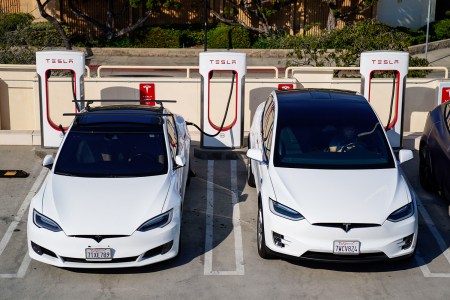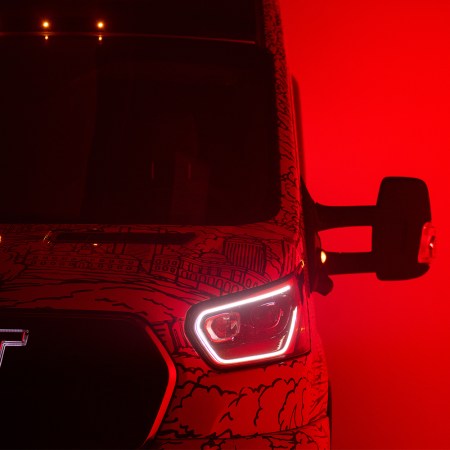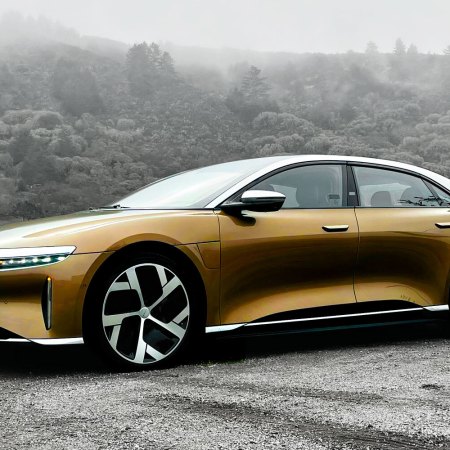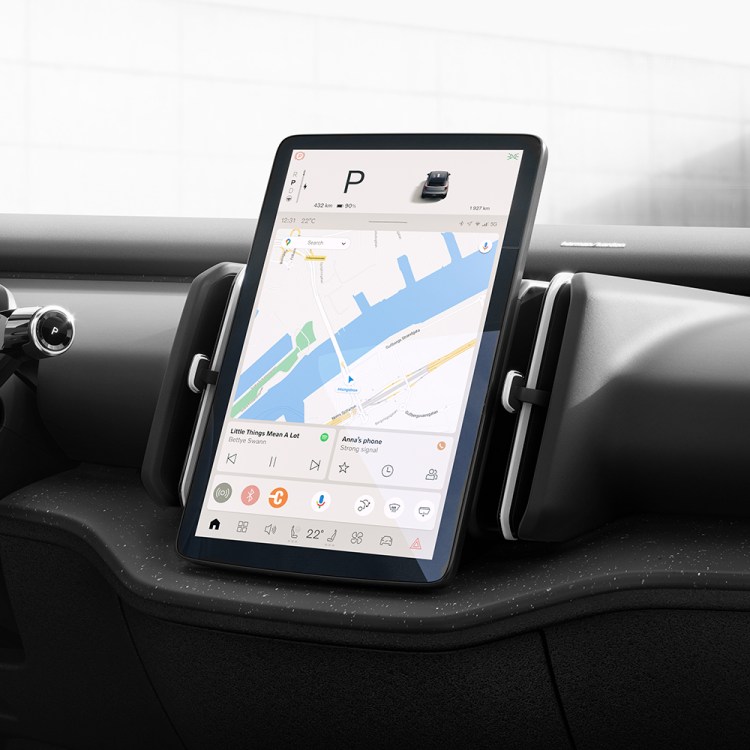Not all electric cars are made the same. It may seem obvious that the 9,000-pound GMC Hummer EV is not as eco-friendly as a normal-sized Chevrolet Bolt, but when you’re trying to make more nuanced comparisons, like, say, between two trucks like the Hummer and the Ford F-150 Lightning, how are you supposed to figure out which is better for the planet?
It’s a complicated task calculating the lifetime emissions of EVs (from battery manufacturing to electricity generation to the efficiency of the vehicle), but Bloomberg Green, the climate and clean energy arm of Bloomberg Media, has crunched the numbers and come up with their own solution: a proprietary EV rating system that assigns a “Green rating” to all models currently on the market.
The most Green vehicle in their estimation is the Lucid Air Dream Range Edition, with a score of 71.1 out of 100, with 100 being the best. (We recently got to drive the Lucid Air Grand Touring Performance, which comes in significantly lower at 62.1.) But that car also costs over $170,000, and that specific trim is no longer available, so it’s worth noting that the next best is the Lucid Air Grand Touring (71.0, priced at $139,000), and the next after that is the Tesla Model 3 Long Range, which scored 67.0 and is actually relatively affordable at $55,990 (though Tesla put a pause on orders for that specific trim until it cuts down on the current waitlist).
The worst ranked EV according to Bloomberg’s calculations? The GMC Hummer EV, with a Green score of 27.4, followed by the Audi E-tron S at 31.1.
But what does “Green” actually mean? Thankfully, the outlet lays out their methodology for all to see and dissect.
“Our scoring system was developed with advice from three of the leading sources for electric vehicle policy and strategy: Atlas Public Policy, BloombergNEF and the Union of Concerned Scientists,” Bloomberg Green wrote. “We arrived at a ‘Green’ model based on two metrics: driving economy, which captures just how well a car uses its resources to get down the road, and battery size, which serves as a proxy for the carbon cost of actually making the vehicle. The former accounts for 70% of the score, while the latter makes up 30%. Our model doesn’t directly account for the carbon cost of actually bolting together the parts and panels of a vehicle.”
They decided on that weighting of the score because “on average 70% of an EV’s carbon footprint comes from its driving according to MIT research,” and 30% “comes from its manufacturing, most critically the construction of the battery.”
Can We Stop Inserting Electric Cars Into the Culture Wars?
A Wyoming legislator introduced a bill to ban the sale of EVs by 2035, but admits it’s just a stuntIf you’re concerned about the potential environmental costs of electric cars, or even of the mind that EVs are more harmful than gas-powered vehicles, Bloomberg Green does address this. They note that “there is no such thing as a zero-emission vehicle,” but that over the lifetime of a new car, EVs “are drastically cleaner than conventional gasoline vehicles.” One resource that they’ve used for this rating system, which can give you a good visual comparison (and that includes hybrid vehicles, not just electric and gas-only), is Carboncounter.com from MIT.
The big takeaway from Bloomberg’s ranking is that some of the newcomers on the automotive scene really know what they’re doing in terms of making eco-friendly vehicles. Tesla and Lucid come in at or near the top for all of their cars and the various trims available for them. The only major automaker who gets in the mix with them is General Motors with the Chevrolet Bolt EV (scoring 59.5; the larger Bolt EUV comes in lower at 56.3).
But not all EV startups can match these two. Rivian, for example, comes in low on the list with its R1T truck (37.1) and R1S SUV (36.4), though both of those best the most affordable version of Ford’s increasingly popular F-150 Lightning (33.0, some more expensive trims score better).
If you’re thinking about buying an EV in the future, Bloomberg Green’s ratings will continue to be updated when new models hit showrooms, so this is a good resource to bookmark. It’s also a good reminder that, for all of the controversy from its CEO, Tesla really does care about the climate impact of its vehicles.
Thanks for reading InsideHook. Sign up for our daily newsletter and be in the know.



















